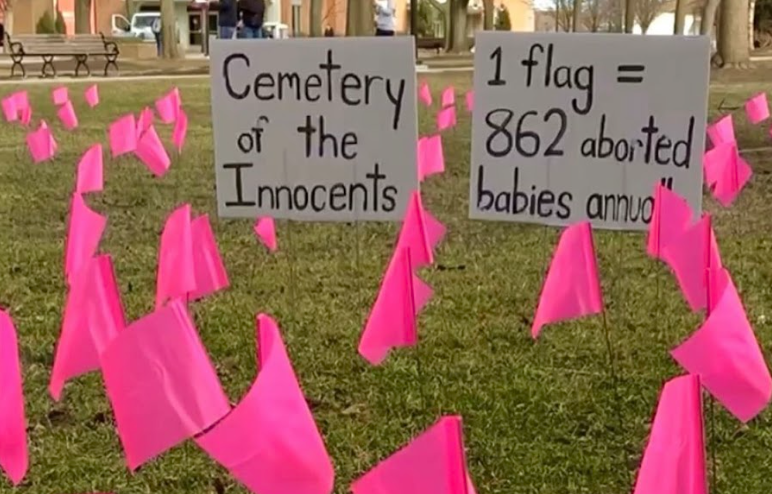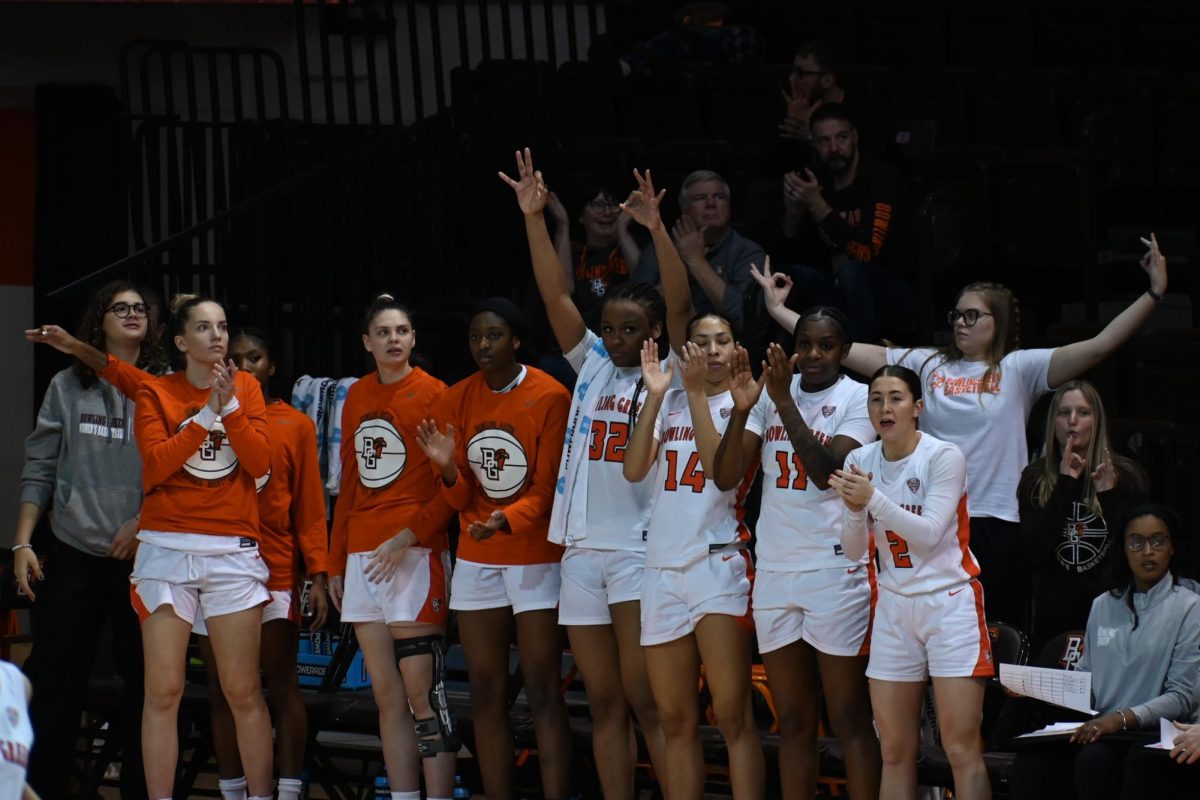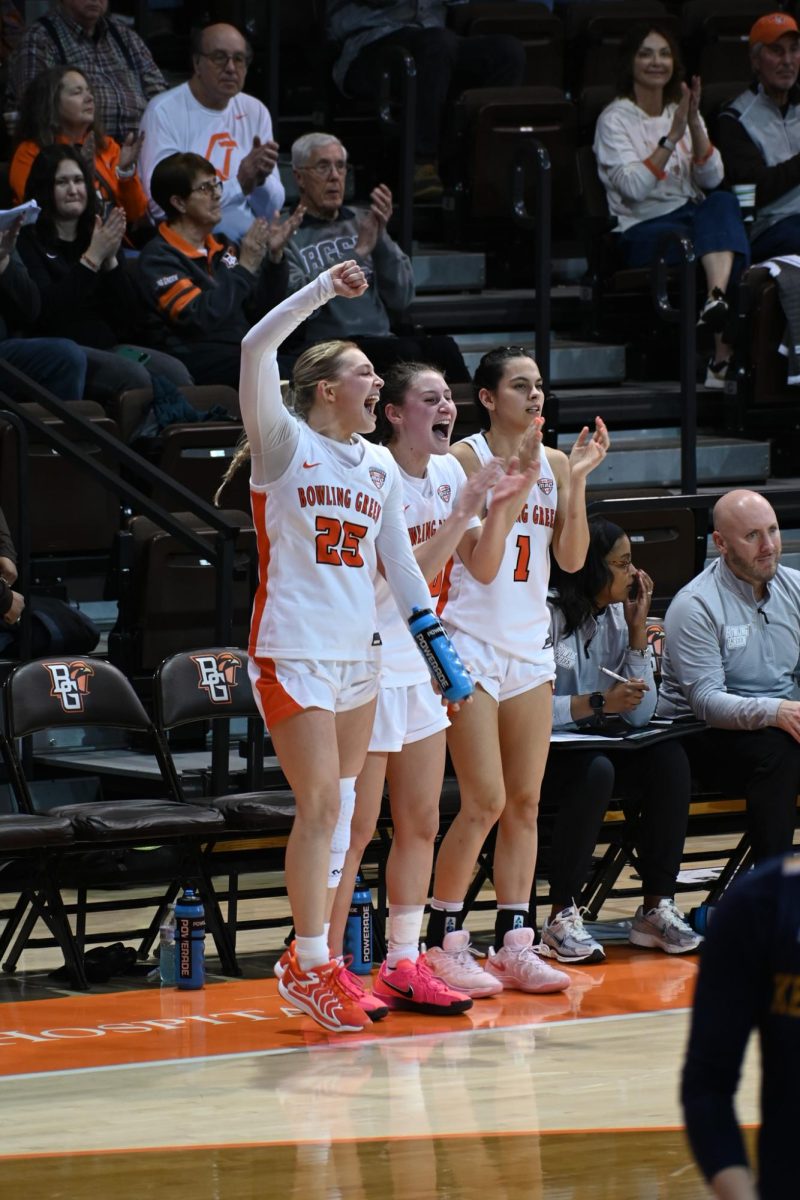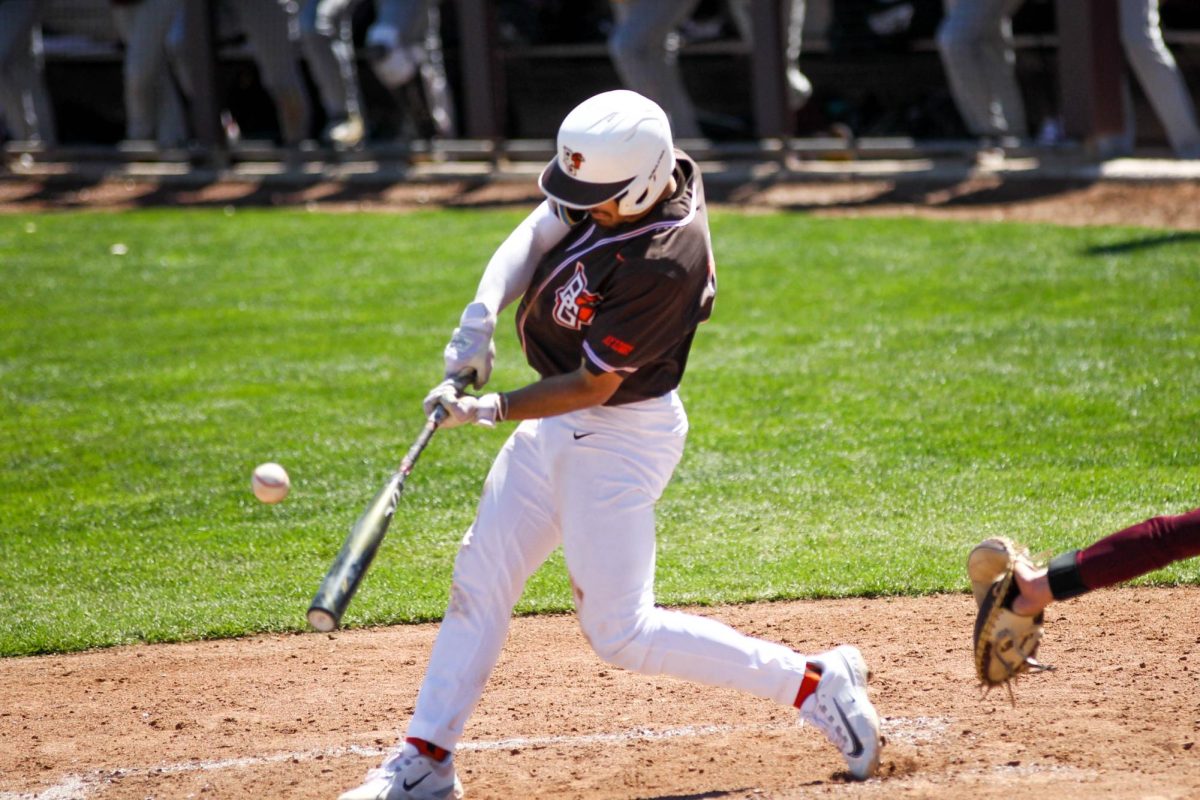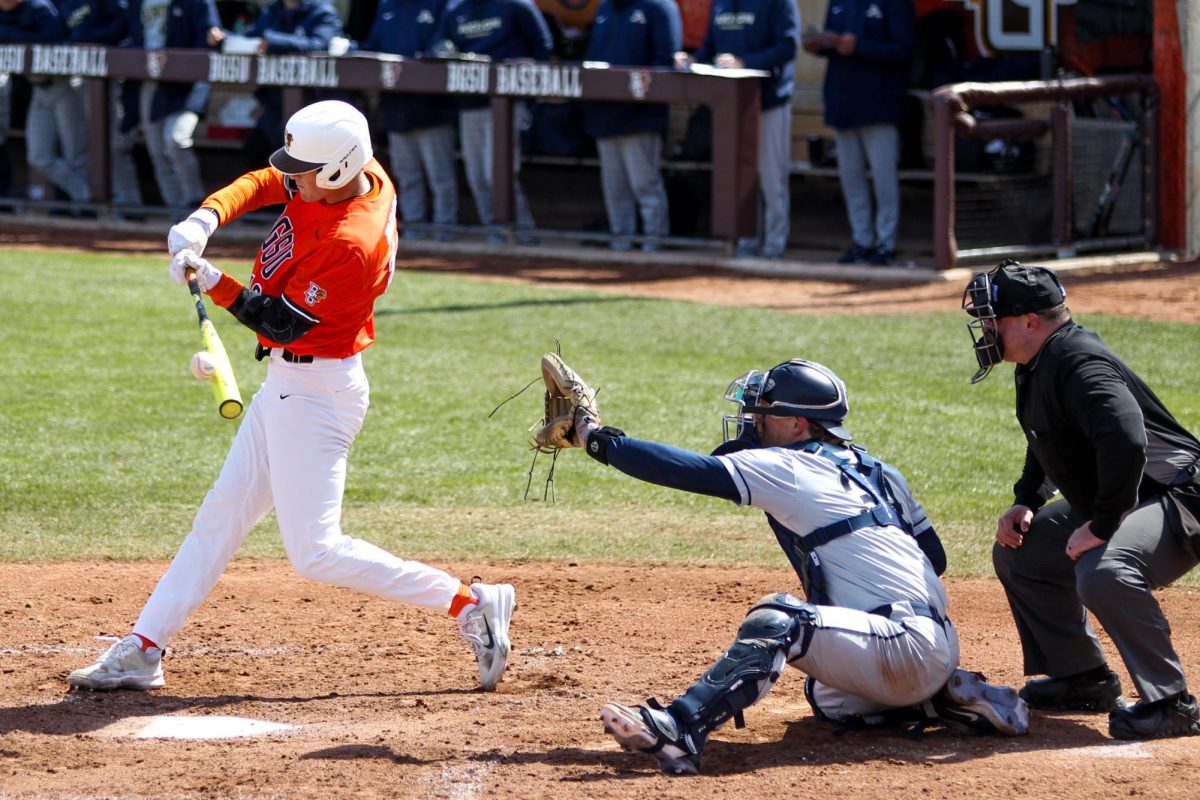Arrest of student at protest prompts questions about rules and regulations
Photo of the flags on display, created by the anti-abortion group Falcons for Life.
March 22, 2023
A Bowling Green State University student was arrested by the BGSU Police Department for criminal mischief on Feb. 20 after she allegedly picked up a flag from an anti-abortion protest display.
According to a police report from BGSU PD, the female student ran past a BGSU PD officer present at the protest after she allegedly took a flag that was part of a protest display created by the anti-abortion group Falcons for Life.
The report said the student did not know she could not take a flag from the protest display, but rather told police she assumed the flags were similar to “taking a flower from the park.”
The student was referred to Student Conduct after being cited for criminal mischief, according to the police report.
Chris Bullins, BGSU’s dean of students, said students taking items from displays is a problem the university often sees when a protest goes on for multiple days.
“When these long events are happening over multiple days, and there is a time that university officials aren’t as readily available and event organizers aren’t readily available, then passersby will get confused,” Bullins said. “I’ve heard people say, ‘Oh, I thought they were out there for me to pick up and take with me. I thought it was something to take.’ So, the person took something, but their intent was not to harm.”
Morgan Reece, president of the Falcons For Life organization that held the days-long demonstration outside of the Education Building, said she understands when people disagree with her organization’s message, but the problem starts when people destroy displays.
“It’s perfectly fine for people to disagree. I know there was a post on social media claiming that we were having people arrested because they disagreed, but you’re absolutely allowed to disagree whether it’s out loud or silently,” Reece said. “The only thing we have a problem with is people taking our flags or destroying the display.”
The flag incident has prompted BGSU students and student organizations to look more closely at the rules and regulations related to protests on campus.
According to Bullins, university policy requires students to protest at the right time, place and in the correct manner.
The university’s Freedom of Expression policy, which applies to all “students, student organizations, faculty, staff and visitors,” states that “the university must allow speech on our campuses that may not align with our values of fostering a campus environment of diversity and inclusion.”
While the policy states the university “has the right to determine the time, place and manner its spaces and facilities can be used,” protests, demonstrations, and marches can be held in any location or at any time, so long as university operations “are not substantially and materially disrupted,” buildings and walkways remain accessible, the property is not destroyed and individuals and groups are not harassed.
But leaders of some student organizations that frequently host protests, like Emily Gerome, vice president of the BGSU College Democrats, said leaders and groups must be aware of these rules and standards before holding protests.
“There was quite a bit of paperwork and logistics that we had to figure out within it,” Gerome said. “We had to book a room in Union that we used and book the space outside. We did all of that through BGSU Conference and Events services.”
Students should also be aware of the Student Rights and Responsibilities policy before having a protest on campus.
“No matter whether you are an organizer or an attendee, these rights apply,” Bullins said. “You have the right to organize one of these events, to stop by and listen, to engage with the speaker or to simply keep walking and not made to stop and be a part of it.”
BGSU leaders like Bullins say they ask students to take responsibility for respecting the rights and property of others by being fully acquainted and complying with published rules and regulations of all local, state and federal laws.
“People have the right to be on campus and not be the target of a true threat, to not be harmed by violence and to not be the target of something obscene or profane. They can go to class and live-in residence halls without those university operations being disrupted,” Bullins said.
At the same time, students who disagree with the messages presented at the protest cannot force the speaker to leave campus.
“One of the things for event organizers is if people disagree with your message, they don’t have the right to institute a ‘hecklers veto.’ The crowd can’t become so unruly that the speaker has to leave,” Bullins said.
While hosting a protest during the fall semester, Gerome said she noticed another group began to protest her event and questioned how an organization that was unaffiliated with the campus could hold a protest.
“There were anti-abortion groups that came in and did their whole thing, which is fine; they can speak however they want. Except they weren’t registered student organizations. They were an off-campus group, and that was where we had a lot of concerns,” Gerome said.
Oftentimes, off-campus protesters know the rules and regulations before stepping on campus, so the university is often unaware of their presence before they are on campus.
“It is not atypical at BSGU or at the majority of campuses across the country that your off-campus people, especially if they are not local, tend to not engage with anyone (before coming to campus),” Bullins said. “Because of decades of experience, they kind of know the rules.”
Gerome and students like her said they were surprised by how easily unregistered groups could hold protests on campus. However, her registered BGSU student organization had to complete many forms before hosting the protest.
“We were taken back by how big some of these protests have been that are not registered student organizations,” Gerome said.
These protests often have people on all sides of the spectrum hearing the message an organization is trying to send, creating a need for police to be present and aware of protests on campus.
“The entire purpose of the police presence is just about safety,” Bullins said. “There are times where people who are that divided and that passionate who are in close proximity that you could see something go wrong and someone could get harmed.”
After receiving a call from the police, Gerome said that while her group was on edge, they were okay that the police were attending the protest.
“We were all kind of on edge because we didn’t know what to expect from it or what the pushback was going to be,” Gerome said. “The police did show up, but we didn’t need to ask for the police to come, so they were there and did stay for the whole time. Which, I guess, was good to keep the peace.”
On the other side, Reece said she is happy to have police present at protests and understands how protests can become “crazy” at times.
“I think the police are definitely needed. Even when we held our silent counter-protest in September, the police called me,” Reece said. “They always get themselves involved because it’s going to get crazy. I loved having the police presence back at our protest in September.”
Students with questions regarding protests or who is protesting on campus can meet with officials like Bullins in the Office of the Dean of Students in the Bowen Thompson Student Union.


